Endometriosis Immunopathology: The Macrophage Connection
Macrophages and tiny signaling particles called extracellular vesicles (EVs) are emerging as central immune players in how endometriosis develops and persists. Together, they shape the immune environment around endometriotic lesions, helping them survive, spread, and resist the body’s defenses. In…
Key Points Lay SummaryMacrophage Phenotypes Induced by Circulating Extracellular Vesicles in Endometriosis
In a study published in the Biomolecules, Martínez-Zamora et al. investigated the potential effect of circulating sEVs in the plasma of well-characterized patients with endometriosis on macrophage phenotype. This study explores how sEVs, which are tiny particles found in the blood of women…
Key Points Lay SummaryCells Constituting Endometriosis Have Different Properties
Many cell types are altered in endometriosis, found a new study published in the Journal of Pathology. The study also found that depending on the subtype of endometriosis, endometriosis cells show signatures of estrogen responsiveness, immunologic cytotoxicity, and proinflammation. Finally, it identified…
Key Points Lay SummaryPreclinical organ-on-chip models of endometriosis lesions - Linda Griffith, PhD
Professor Linda Griffith, Professor of Biological and Mechanical Engineering and the director of the Center for Gynepathology Research at Massachusetts Institute of Technology gave a presentation about their preclinical organ on-chip models of endometriosis lesions at the 14th Annual International…
Key Points Lay SummaryMatrix metalloproteinases and their role in endometriosis
The extracellular matrix harbors important macromolecules such as collagen and glycoproteins which are required for tissue remodeling, differentiation, and homeostasis. The main group of enzymes responsible for these properties is called matrix metalloproteinases (MMPs). It has been proven that MMPs…
Key Points Lay SummaryInflammatory and genetical background of endometriosis may yield new therapeutic approaches
Elisa Giacomini and colleagues from medical centers in Milan, Italy have published their review manuscript on the inflammatory and genetical pathogenetic background of endometriosis in a recent issue of “International Journal of Molecular Sciences”, suggesting also new therapeutic approaches. The inflammatory…
Key Points Lay SummaryMenstrual Blood Proteins for Endometriosis Diagnosis
Endometriosis is a gynecological disorder characterized by endometrial tissue outside the uterine cavity. The backflow of menstrual blood from the uterus through the fallopian tubes is thought to be the cause of endometrial tissue growing outside the uterine cavity when…
Key Points Lay SummaryStudy Sheds Light on Physiological Processes Associated with Endometriosis
Sensory nerves play an important role in the development of endometriosis as well as fibrosis, confirms a study by Chinese researchers. A better understanding of physiological processes associated with the development of endometriosis can help researchers devise new ways to…
Key Points Lay SummaryMenstrual blood-derived stem cells
Chen et al. from the Center of Diagnosis and Treatment of İnfectious Disease, Zhejiang University, China penned this recent review in the Journal of Stem Cell Research Therapy which is presenting the clinical potential of MenSCs (Menstrual blood-derived stem cells). …
Key Points Lay SummaryExosome: a new avenue for endometriosis research
Endometriosis affects 10% of reproductive-aged women. The pathophysiology of this disease remains mysterious, with a lack of effective biomarkers necessitating surgical intervention for diagnosis. This creates an urgent need for accurate noninvasive diagnostic tests and the identification of effective therapeutic…
Key Points Lay SummaryA Balancing Act: How Endometriosis Invades the Body
Endometriosis is a disease defined by the presence of endometrial tissue outside of the uterine cavity. Ectopic endometrial tissues have been shown to have some features that mimic malignancy. For example, endometriosis can invade surrounding structures and attach to surfaces such…
Key Points Lay SummaryIs there a new hope for the prevention of endometriotic invasions?
This research which recently published in Biomed Research International is performed by Xiaomei et al. from Obst/Gyn, Pathology and Genetic departments of three hospitals in Changsha, CHINA. The authors planned a prospective and controlled biochemical study to specify the role…
Key Points Lay SummaryThe pathogenesis of endometriosis : New discoveries with clinical impact
In this recent review article that appeared in Current Women’s Health Reviews, compiled by researchers from the Department of Molecular Cell Biology and Human Genetics, Institute of Cell Biology and Neuroscience Frankfurt, Germany the following important points in regard to the molecular and cellular pathogenesis of…
Key Points Lay SummaryA Potential New Target for the Treatment of Endometriosis
A protein called STIP1 could be facilitating the migration of endometrial tissue outside the uterus, therefore, leading to endometriosis according to a study by Taiwanese researchers. The protein could, thus, be used as a potential therapeutic target for endometriosis. For…
Key Points Lay SummaryEctoenzymes as endometriosis biomarkers
The diagnosis of endometriosis is often delayed by 7 to 11 years because of the lack of a non-invasive diagnostic test. The ovarian endometriomas occur in about 17%-44% of women with endometriosis and cysts which contain endometrial tissue and fluid…
Key Points Lay Summary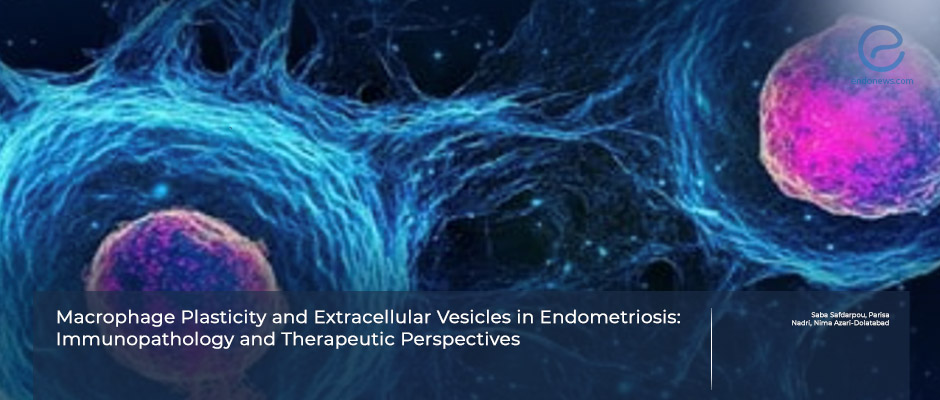
 By Ayse Ayhan
By Ayse Ayhan
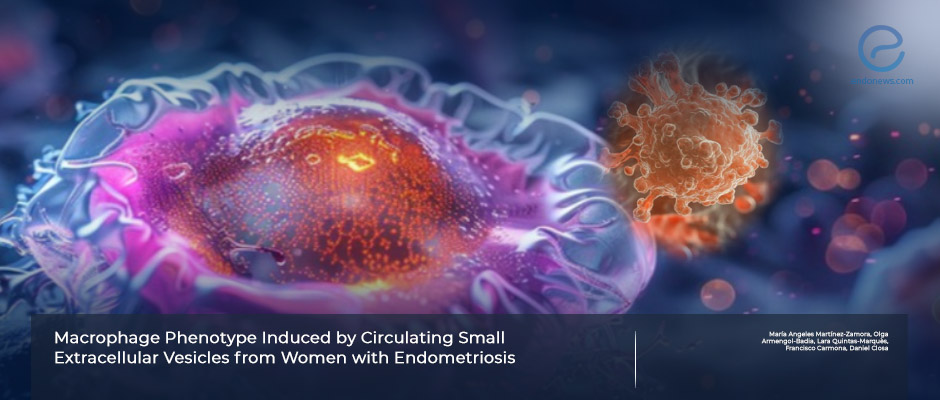

 By Özge Özkaya
By Özge Özkaya


 By Eylül GÜN
By Eylül GÜN
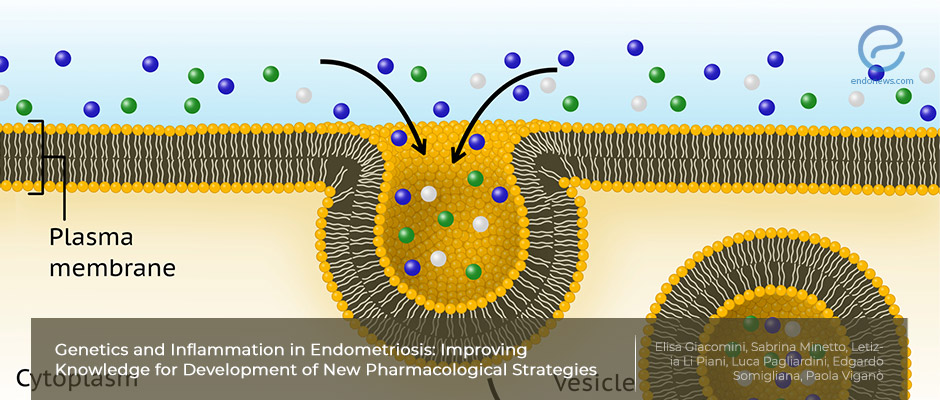
 By Nasuhi Engin Aydin
By Nasuhi Engin Aydin
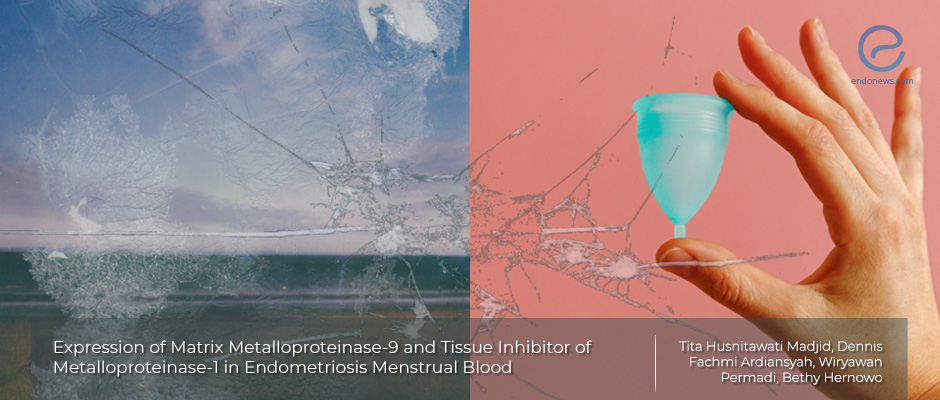
 By Ellen Tumimbang
By Ellen Tumimbang


 By Selma Oransay
By Selma Oransay

 By Dr. Youngran Park
By Dr. Youngran Park
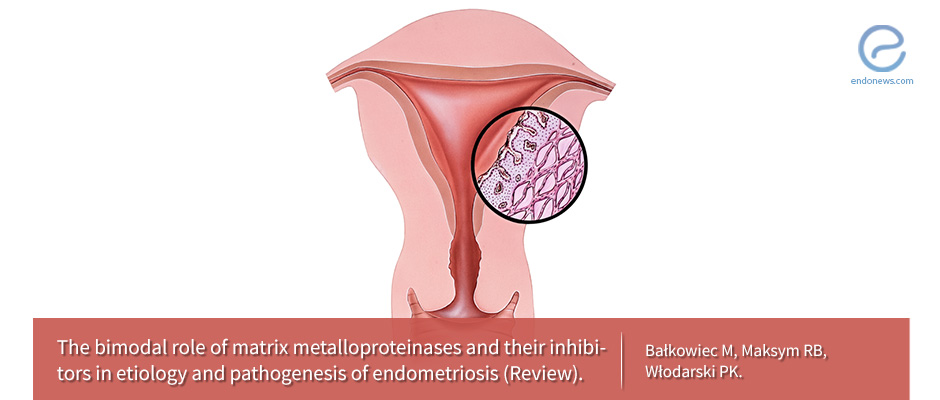
 By Murat Osman
By Murat Osman




 By Yu Yu
By Yu Yu